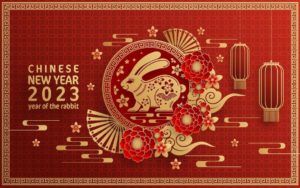
This blog was written by Jean Yong, Associate Estate and Trust Consultant with Scotia Wealth Management
Chinese culture boasts a long and rich history. It is one of the world’s oldest cultures dating back thousands of years and includes a set of social norms and beliefs shared to a varying degree by the Chinese population.
Prior to entering the world of estates and trust, I too, was naïve to the significance of having a will, let alone any sort of estate plan, because my family would not dare discuss death. In Chinese culture, estate planning is taboo and frowned upon as it goes against the philosopher Confucius’ core values. His ideology, “Tien Ming” expresses the idea of fate and mission and holds that all things, including life and death, riches and poverty, and health and illness, are under the direction of heaven. He advised people to simply accept whatever occurred to them, even death. Therefore, he believes the discussion of the post-mortem world is unnecessary.
After working in the trust and estates sector for a while, I only later came to understand how much estate planning can develop and strengthen Chinese cultural values. With Chinese New Year coming up, perhaps it’s time to update Confucius’ logic!
Family reunions, lion dances, the giving and receiving of lucky red envelopes, and the satisfaction of eating “lucky” delicacies all take place throughout the two-week long new year’s celebration. These customs are intended to symbolize and encourage prosperity, well-being, and peace within the family. However, many of these customs are based on superstition and symbolism, and not necessarily having the onus to take on the necessary action to assure good health and good fortune.
With reference to promoting good fortune, dumplings and steamed fish are consumed during Chinese New Year to spread good fortune. The fish consumed symbolizes having a surplus at the end of the year, while dumplings mimic ancient gold bars. Simple “wishes” for increased prosperity do not consider the drawbacks of high taxes and costly fees associated with settling an estate, on your passing. Real estate, businesses, investments, cash, and other assets that make up your estate could result in hefty capital gains taxes, probate fees, and other costs, leaving less of your estate to be given to your beneficiaries (as your estate takes on those fees). Estate planning is a tool to lessen the impact of the previously mentioned consequences to not having a well-written will in place. One thing is certain, the CRA (Canada Revenue Agency) are the “first beneficiaries” to your estate, and you spend most of your life working hard, so why pay more than you need to, back to the government?
Noodles are consumed at New Year’s to symbolize longevity and to encourage good health. As a result of an increase in life expectancy, careful planning is now necessary in the event a person becomes incapable. For example, you could live to be 100 years old but suffer an accident that prevents you from caring for your own health or finances for the rest of your life. As a result, POAs (Powers of Attorneys) are an important part of estate planning. You must choose someone you can rely on to handle your affairs if you become incapacitated and require assistance with both health care and financial management. An individual can be designated as your POA for both personal care (health) and property (finances), whereas a trust company can only be designated as your POA for property. To summarize, you do not want to wait for a traumatic event to occur before seeking assistance.
Finally, “tang yuan” (rice glutinous ball) is eaten to symbolize the reunion of loved ones and the value of family. In Chinese culture, it is common for parents to make decisions that benefit their children or other family members. For example, parents who run a business in the hope that their children will take over and they will no longer have to worry about their children going unemployed. Many Chinese people, on the other hand, invest in real estate for their children. As you can see, Chinese families think carefully about how to best serve their children and prepare them for future success. It is critical to document your wishes in a well-written will to ensure that your hard-earned money and assets are distributed appropriately.
Overall, Chinese New Year is a wonderful time to celebrate what we have while also considering steps we can take to maintain harmonious family dynamics and ensure that wealth is smoothly transitioned to the next generations. Proper estate planning is essential to ensuring all the above.

3 Comments
Peter Meitanis
January 19, 2023 - 12:17 pmThis may be your first post, but it’s one of my favourites. Great job Jean!
Katherine Boland
January 20, 2023 - 3:06 pmValuable cultural perspective!
ran
January 26, 2023 - 2:21 amvery informative and insightful! Thank you for sharing Jean!!